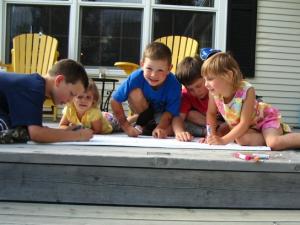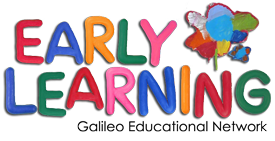

Montreal-based Centre of Excellence for Early Childhood Development has these tips on maximizing the benefits of play at home:
- Interacting with your child during play helps develop language, problem-solving skills and creativity. Encourage your child to start and lead play activities. Take your child on outings to stimulate his or her imagination.
- Provide your child with play spaces that have lots of letters and words, such as books, posters and signs. This will help him or her become familiar with letters and words, and how they’re used. Items such as crayons, paper, paint, plastic letters and glue are also useful.
- Free play is vitally important for your child’s development. Trust your child to be able to guide his or her own play and learn from it. Your job is not to have all the answers, but to give your child the tools to explore their questions. This is something you can do together.
Dr. Jane Hewes, chair of the Early Childhood Development program at Grant MacEwan University, explains in this video.
Moms and Dads approach play very differently, according to Dr. Robbin Gibb. For a long time play has not been valued and the time that would have been spent playing has been lost. Dr. Gibb suggests that, “play is one of the most important ways to develop areas in the brain.”
Downloads
Dr. Jane Hewes has tips on how adults can create an environment that allows children to explore their environment and learn through play.
Ratios are the name of the game when a young child decides to make “soup” out of different types of marbles.
A simple bedtime story can open the door to another “what if” conversation that involves math.
Even a walk along and across a muddy creek can be explored deeply in a mathematical way.
This document contains information about core math skills, such as compensation, patterns and cardinality. The skills are also identified in the math-related play outlined in the other math downloads on the site.
Mathematical reasoning and problem solving are just some of the math skills gained by playing with a simple set of blocks.
Many children’s books address mathematical ideas in fun and interesting ways. Simply reading them, however, won’t instill deep mathematical understanding. But when kids can model the stories and are encouraged to find ways to generalize the mathematical ideas the stories contain, books can provide great opportunities for deepening mathematical understanding.
Read how one child develops correspondence and compensation skills, thanks to a simple game of jumping frogs, rocks or marbles.
Breakfast time can be a great opportunity to think mathematically, as one mom and her son discovered.
Adding food colouring to water is not only a great way to explore different colour combinations, but to allow your child to systemically work through all the possibilities.

